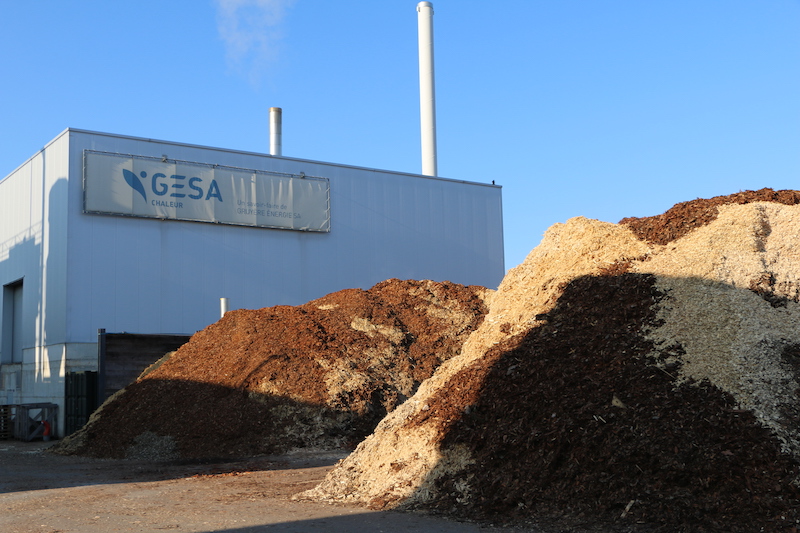Photo : As much as 95% of the GESA district heating network is powered by wood, a local and renewable resource.

The main advantage of district heating is that it replaces fossil fuels like gas and oil with local, renewable energy. It centralizes heat production and does away with the need to install boilers, fuel tanks, firing systems and chimneys.
GESA (Gruyère Energie SA) operates Fribourg’s largest heating network, servicing the canton’s second largest city Bulle, and its surrounding areas. Six heating plants and 150 kilometers of interconnected underground pipes supply 900 properties. “We distribute 110 GWh of heat per year, a figure that is expected to double by 2030”, notes Dominique Progin, Director of Energy & Infrastructure at GESA. “We work with the Despond sawmill and the region’s forestry corporations, which supply us with byproducts from their wood processing activities, such as bark and shavings. This means that we are able to supply 95% renewable energy at really competitive prices. Beyond the obvious environmental benefits, this fully local, circular economy model is incredibly robust which means that it is impervious to the major oil market fluctuations that happen from time to time.”
Renewable energy – the only way forward
At the same time, Groupe E is busy expanding its district heating network in the canton’s capital. According to Pascal Abbet, Director of Groupe E Celsius, “Our primary source at the moment is waste heat from the Saidef incineration plant. But we have also begun to tap into local renewable sources like wood, deep geothermal energy and industrial waste heat.” The canton’s major electricity provider has set itself an ambitious goal of meeting 60% of the heating needs of the greater Fribourg area through almost entirely renewable energy sources (75%). “Our plan is to distribute close to 600 GWh per year by 2040.” If it continues on this track, Groupe E will reach the lofty targets of the Paris Agreements and Switzerland’s 2050 energy strategy, without breaking a sweat.
